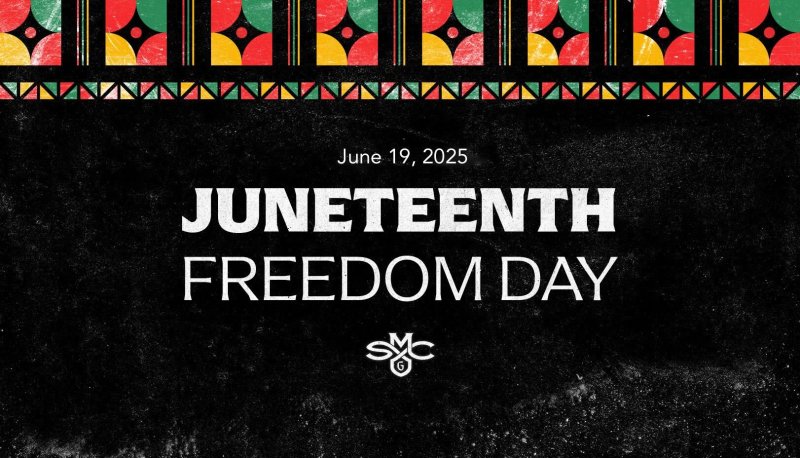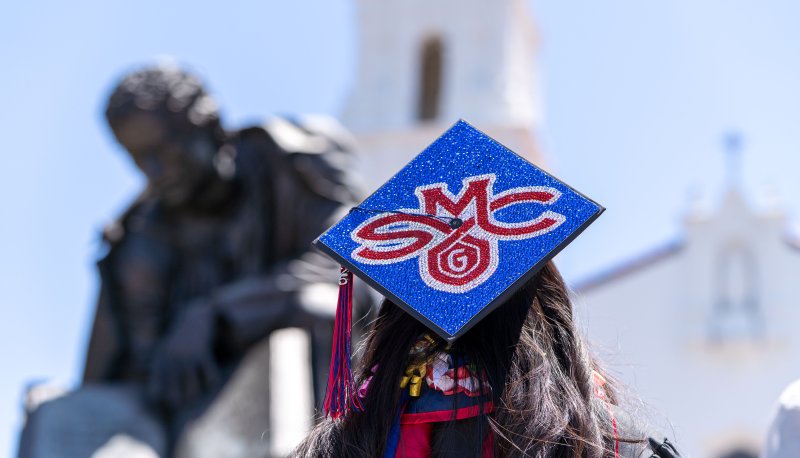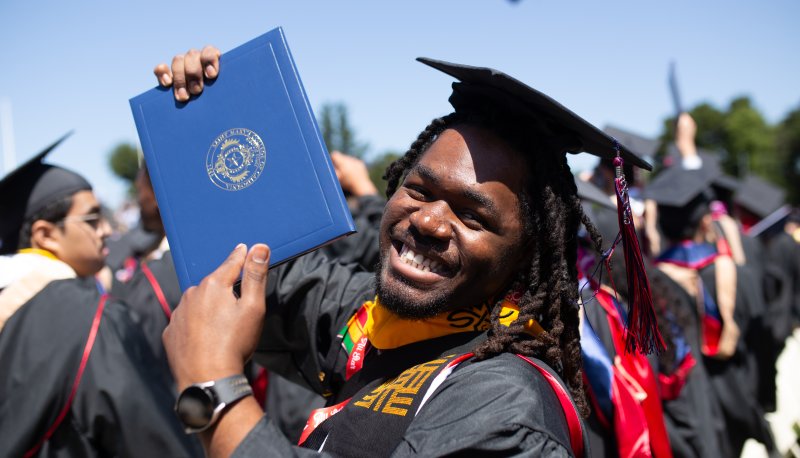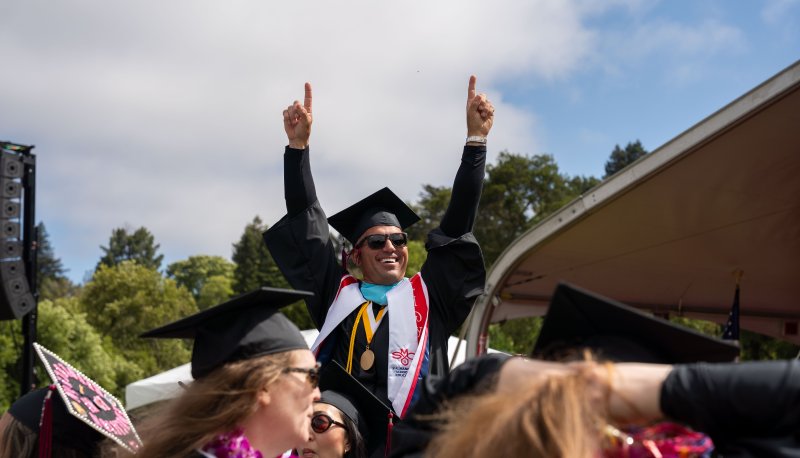Image

Juneteenth Reflection and Celebration
A message to the Saint Mary’s Community
Tomorrow’s Juneteenth holiday, established as a federal holiday when President Joe Biden signed a bill into law on June 17, 2021, honors the 1865 notification of emancipation for the formerly enslaved in Texas. The day offers us a moment to consider the collective experiences of African Americans since that time.
The creation of this holiday served as a symbolic recognition of the struggles faced by African Americans. The struggles continue to this day, however, with efforts that attempt to erase or diminish Black contributions to American history, current attacks on voting rights and educational opportunities, and even the very acknowledgement of Black history that is central to the American identity.
This year, Juneteenth arrives in a moment of heightened tension. From debates in Washington, DC, over the future of birthright citizenship, to preparations for next year’s 250th anniversary of the Declaration of Independence—a document signed by many who themselves enslaved others, including Thomas Jefferson—our national discourse calls us to examine what freedom, citizenship, and justice truly mean.
Just last weekend, an estimated 5 million people or more participated in more than 2,000 “No Kings” protests across the country, many expressing concern about current immigration policy and the broader direction of our democracy. In this context, Juneteenth may feel different than in years past—more urgent, more complex, and perhaps more necessary than ever.
However you choose to mark the day, I encourage you to take time for reflection—to honor the past, engage with the present, and consider the future. For those who may wish to attend an event, there are several Juneteenth gatherings and celebrations taking place in the Bay Area:
The creation of this holiday served as a symbolic recognition of the struggles faced by African Americans. The struggles continue to this day, however, with efforts that attempt to erase or diminish Black contributions to American history, current attacks on voting rights and educational opportunities, and even the very acknowledgement of Black history that is central to the American identity.
This year, Juneteenth arrives in a moment of heightened tension. From debates in Washington, DC, over the future of birthright citizenship, to preparations for next year’s 250th anniversary of the Declaration of Independence—a document signed by many who themselves enslaved others, including Thomas Jefferson—our national discourse calls us to examine what freedom, citizenship, and justice truly mean.
Just last weekend, an estimated 5 million people or more participated in more than 2,000 “No Kings” protests across the country, many expressing concern about current immigration policy and the broader direction of our democracy. In this context, Juneteenth may feel different than in years past—more urgent, more complex, and perhaps more necessary than ever.
However you choose to mark the day, I encourage you to take time for reflection—to honor the past, engage with the present, and consider the future. For those who may wish to attend an event, there are several Juneteenth gatherings and celebrations taking place in the Bay Area:
- Hella Juneteenth Festival, Oakland Museum of California, Noon–5 p.m., Thursday, June 19
- Juneteenth: a Freedom Celebration, Williamson Ranch Park, Antioch, 4–8 p.m., Thursday, June 19
- Vallejo Juneteenth Parade and Festival, 11 a.m.–5 p.m. Parade at Tennessee Street and Sonoma Blvd and Festival at Barbara Kandylis Waterfront Green, Saturday, June 21
- Richmond Juneteenth Festival, 10 a.m.–6 p.m., Nicholl Park, Saturday, June 21
- Marin City Juneteenth Festival, 11 a.m.—6 p.m., Rocky Graton Park, Sausalito, Saturday, June 21
- San Francisco Juneteenth Parade, Market Street and 8th Street, Sunday, June 22
Sincerely,
Dr. Terri Jett
Associate Vice President/Senior Diversity Officer
Dr. Terri Jett
Associate Vice President/Senior Diversity Officer


